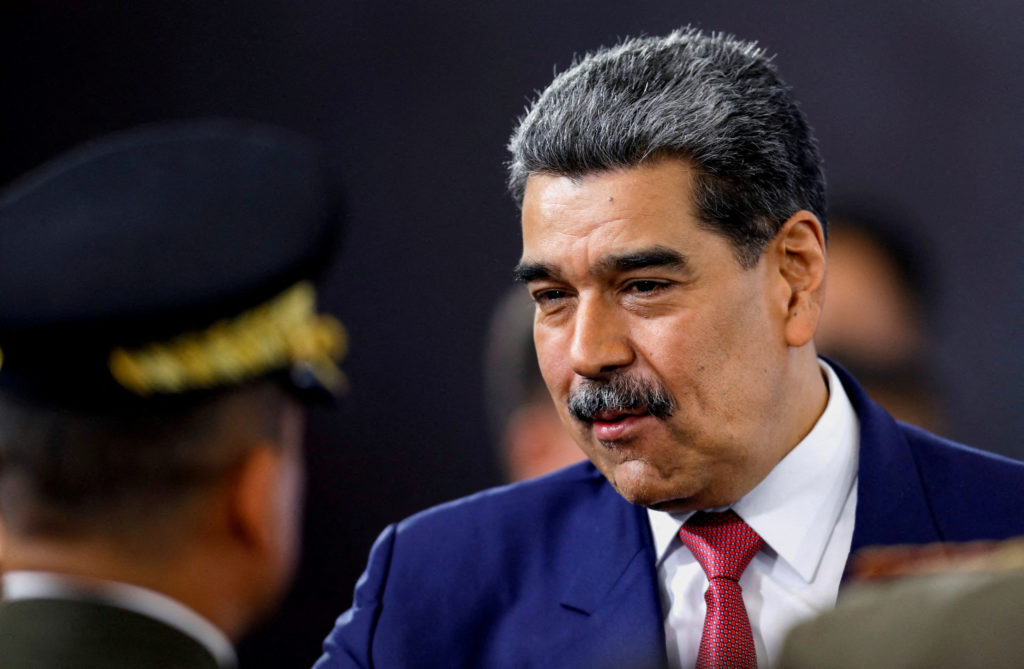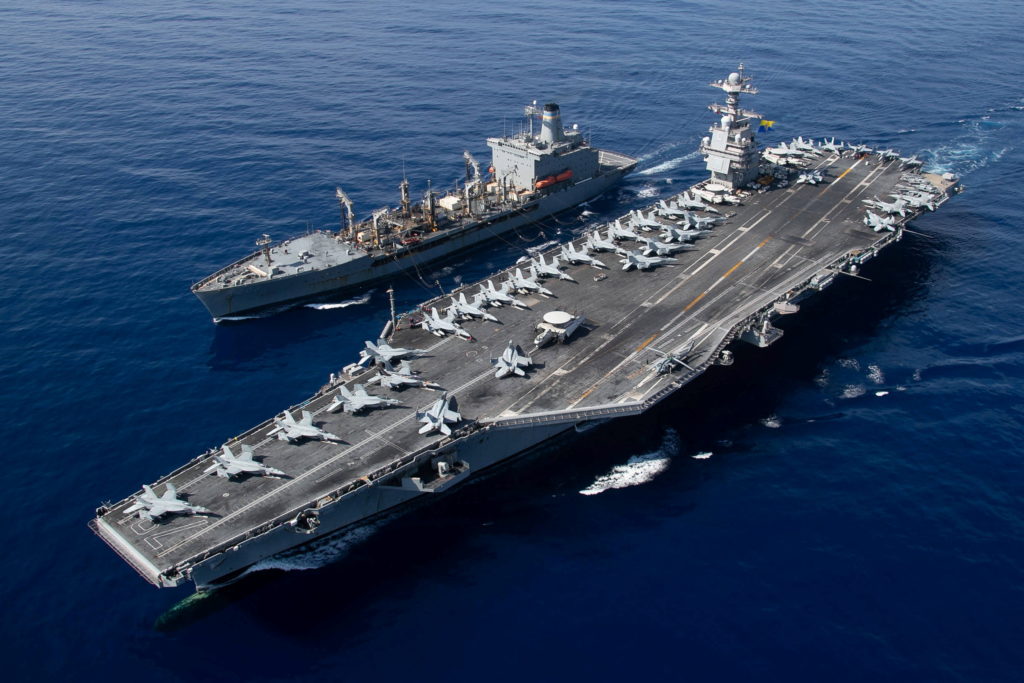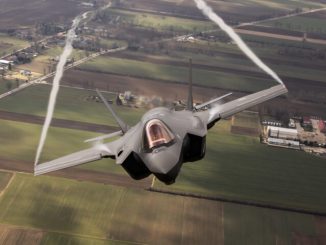
Tensions with Venezuale have flared as a result of the US military campaign
Published October 26, 2025
Venezuelan President Nicolás Maduro has accused the United States of fabricating a war as the USS Gerald R. Ford, the world’s largest aircraft carrier, approaches the Caribbean. The U.S. military has deployed the carrier and its strike group to Latin America, citing a mission to combat transnational criminal organizations and drug trafficking. However, Maduro dismisses these claims as a pretext for escalating tensions and potential military action against Venezuela.
In a national broadcast on October 24, 2025, Maduro stated that the U.S. is “fabricating a new eternal war,” emphasizing that Venezuela does not produce cocaine leaves and is not involved in drug trafficking. He referred to the narrative surrounding the deployment as “extravagant,” “vulgar,” “criminal,” and “totally fake.” The USS Gerald R. Ford, capable of hosting up to 90 aircraft, is currently en route from the Mediterranean and is expected to join a significant U.S. military presence already in the region.
The Trump administration has authorized CIA operations in Venezuela and has conducted several strikes on vessels allegedly involved in drug trafficking, resulting in at least 43 deaths. Legal experts have raised concerns about the legality of these actions, as they were carried out without congressional approval. Maduro has vowed to resist any attempts to topple his government, labeling the current U.S. threat as the most significant in a century.
This escalation marks a significant increase in U.S. military activity in Latin America, with the Pentagon’s deployment of the USS Gerald R. Ford and its strike group to the region. The situation remains fluid, and further developments are anticipated as the carrier approaches Venezuelan waters.
Venezuelan President Nicolás Maduro has accused the United States of fabricating a war as the USS Gerald R. Ford
 Implications of the U.S.–Venezuela tensions over the USS Gerald R. Ford deployment and Maduro’s rhetoric:
Implications of the U.S.–Venezuela tensions over the USS Gerald R. Ford deployment and Maduro’s rhetoric:
1. Regional Security Implications
-
The U.S. deployment increases military presence in the Caribbean, signaling readiness for potential conflicts.
-
Neighboring countries (e.g., Colombia, Trinidad & Tobago, and Brazil) may feel compelled to adjust their security policies, including air and maritime patrols.
-
The standoff may embolden non-state actors (like smugglers or paramilitary groups) to exploit heightened tensions for illicit activities.
2. Domestic Political Implications
-
For Maduro, the narrative of foreign aggression strengthens nationalist sentiment, consolidating support and justifying strict control measures.
-
The opposition in Venezuela risks being marginalized, as public attention shifts to defending sovereignty.
-
In the U.S., the deployment may intensify partisan debate: some lawmakers and analysts may support deterrence and counter-narcotics missions, while others criticize the legality or risk of escalation.
3. Economic Implications
-
Heightened tensions can discourage foreign investment in Venezuela and the broader region.
-
Oil exports and shipping routes may face delays, raising global energy market concerns.
-
Potential sanctions or retaliatory measures could further strain Venezuela’s fragile economy.
4. Diplomatic and Legal Implications
-
Venezuela may appeal to international organizations (UN, OAS) claiming violation of sovereignty.
-
The U.S. faces legal scrutiny over CIA-authorized strikes and the extent of presidential authority in military operations abroad.
-
Strained diplomatic relations could affect regional cooperation on trade, counter-narcotics, and migration issues.
5. Humanitarian and Social Implications
-
Civilian populations, especially in coastal areas, may face anxiety or displacement if naval exercises are perceived as threatening.
-
Social services could be disrupted if government resources are diverted to military readiness.
-
Psychological effects may exacerbate existing economic hardships and internal instability.
6. Geopolitical Implications
-
The standoff could reshape alliances in Latin America, with some countries backing Venezuela and others aligning more closely with U.S. policy.
-
Russia and other Maduro allies may view U.S. actions as a challenge to their influence, potentially escalating military or political support for Venezuela.
-
The event signals U.S. willingness to project power in its hemisphere, potentially affecting future regional crises.

Trump witheringly told the press that Maduro offered the US ‘everything’ because he doesn’t want to ‘f*** with the United States’

Venezuelan military patrol around the Simon Bolivar International Bridge at the Colombia-Venezuela border as seen from Villa del Rosario, Colombia on October 16, 2025
 Overall Takeaway:
Overall Takeaway:
The deployment of the USS Gerald R. Ford to the Caribbean and President Nicolás Maduro’s denunciations have escalated U.S.–Venezuela tensions to one of the highest levels in recent decades. While the U.S. frames its actions as a mission against transnational crime and drug trafficking, Maduro portrays them as a fabricated pretext for military aggression.
This standoff has significant implications: it strengthens Maduro’s domestic political position, raises regional security concerns, fuels legal and diplomatic debates, and creates economic uncertainty for Venezuela and its neighbors.
Looking ahead, the situation is likely to evolve through a combination of diplomatic maneuvering, strategic military signaling, and continued nationalist rhetoric. Although a full-scale conflict appears unlikely at this stage, the heightened tensions underscore the fragility of regional stability and the potential for rapid escalation if miscalculations occur.
In the meantime, the world watches closely as both nations navigate this precarious balance between deterrence, diplomacy, and domestic politics.
SOURCES: THE WASHINGTON TIMES – Venezuela’s Maduro says the U.S. is fabricating a war as aircraft carrier approaches
DAILYMAIL ONLINE – Nicolas Maduro pleads with Trump not to start ‘crazy war’ with Venezuela after US president threatened military action







Be the first to comment